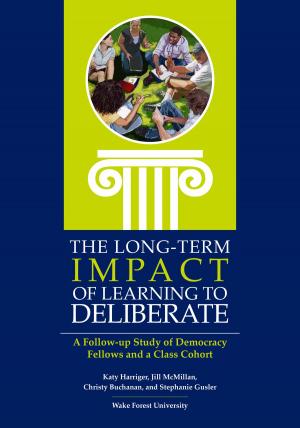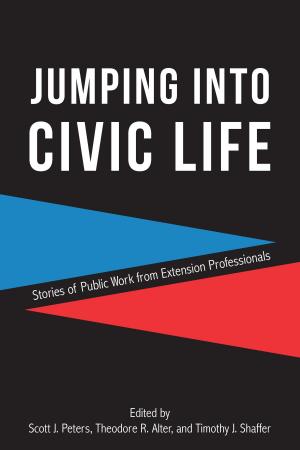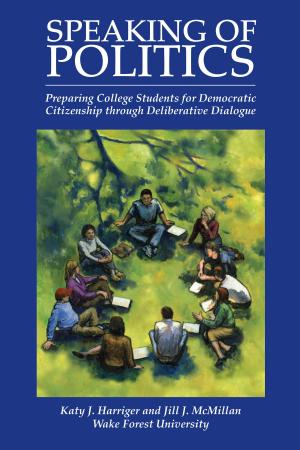Deliberation in the Classroom
Fostering Critical Thinking, Community, and Citizenship in Schools
Nonfiction, Reference & Language, Education & Teaching, Educational Theory, Curricula, Philosophy & Social Aspects, Teaching, Teaching Methods| Author: | Dr. Stacie Molnar-Main | ISBN: | 9781945577246 |
| Publisher: | Kettering Foundation | Publication: | October 1, 2017 |
| Imprint: | Kettering Foundation | Language: | English |
| Author: | Dr. Stacie Molnar-Main |
| ISBN: | 9781945577246 |
| Publisher: | Kettering Foundation |
| Publication: | October 1, 2017 |
| Imprint: | Kettering Foundation |
| Language: | English |
From the first appearance of the National Issues Forums in 1982, teachers have recognized the usefulness of both the NIF issue guides and the process of framing issues for deliberation as models for the role and work of citizens in a democracy. In 2006, the foundation began a series of learning exchanges—known as Teaching with Deliberation—with teachers interested in using deliberation with their students. Those learning exchanges, and the reports teachers and administrators produced over the past ten years, helped identify the key benefits and challenges teachers experienced when introducing deliberative practices into their classrooms and documented teachers' observations about the impact deliberation had on their students' sense of themselves as democratic citizens.
Deliberation in the Classroom, by Kettering research deputy Stacie Molnar-Main, is the product of that research. The book's insights, presented in terms that resonate with educators, support both the wider use of deliberative practices and the goal of growing the number of students who recognize a role for themselves as citizens in a democracy. It highlights the work of educators who place civic education at the heart of their work by choosing to teach their students an alternative to the divisive, zero-sum politics advanced by interest groups and portrayed in the media. These educators embrace participatory models of learning and decision making and work hard to expose students to difficult issues and varied perspectives, including unpopular and marginalized points of view. They understand that critical thinking and community building are not mutually exclusive terms, and that citizens need to learn how to talk, listen, and work with others so they can tackle complex issues that affect their communities.
From the first appearance of the National Issues Forums in 1982, teachers have recognized the usefulness of both the NIF issue guides and the process of framing issues for deliberation as models for the role and work of citizens in a democracy. In 2006, the foundation began a series of learning exchanges—known as Teaching with Deliberation—with teachers interested in using deliberation with their students. Those learning exchanges, and the reports teachers and administrators produced over the past ten years, helped identify the key benefits and challenges teachers experienced when introducing deliberative practices into their classrooms and documented teachers' observations about the impact deliberation had on their students' sense of themselves as democratic citizens.
Deliberation in the Classroom, by Kettering research deputy Stacie Molnar-Main, is the product of that research. The book's insights, presented in terms that resonate with educators, support both the wider use of deliberative practices and the goal of growing the number of students who recognize a role for themselves as citizens in a democracy. It highlights the work of educators who place civic education at the heart of their work by choosing to teach their students an alternative to the divisive, zero-sum politics advanced by interest groups and portrayed in the media. These educators embrace participatory models of learning and decision making and work hard to expose students to difficult issues and varied perspectives, including unpopular and marginalized points of view. They understand that critical thinking and community building are not mutually exclusive terms, and that citizens need to learn how to talk, listen, and work with others so they can tackle complex issues that affect their communities.















